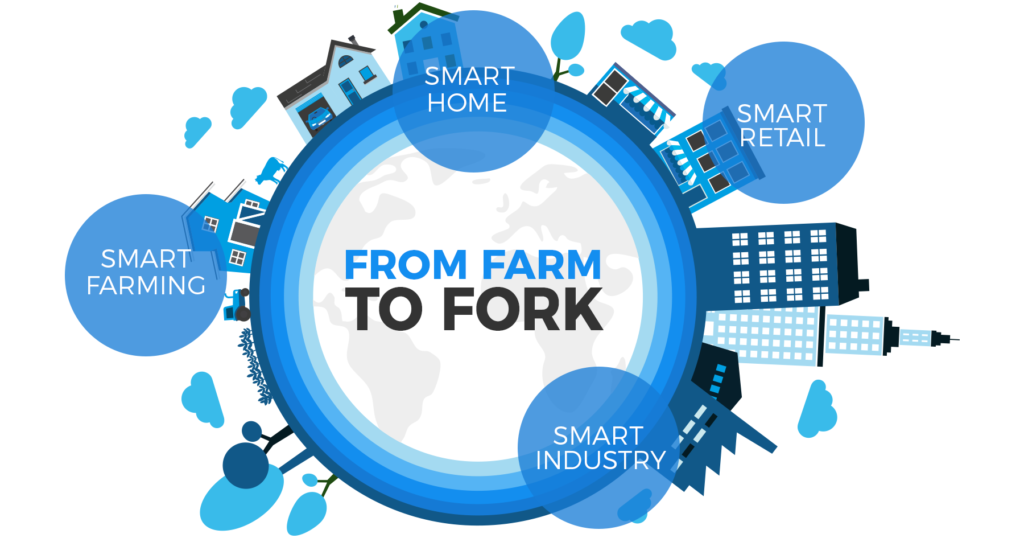In today’s rapidly evolving world, technology touches every aspect of our lives, and the food industry is no exception. From how our food is produced and processed to how it’s prepared and delivered, technology has ushered in a new era of innovation and efficiency. In this blog post, we’ll explore the multifaceted role of technology in the food industry, highlighting the ways it has transformed everything from farm to fork.
Precision Agriculture
The journey of our food begins on the farm, and technology has revolutionized agriculture. Farmers now use drones equipped with sensors and cameras to monitor crop health, soil conditions, and pest infestations. These insights enable them to optimize irrigation, reduce the use of pesticides, and increase crop yields. Precision agriculture not only benefits the environment but also ensures a more abundant and reliable food supply.
Sustainable Farming
With growing concerns about the environmental impact of food production, sustainable farming practices have gained prominence. Technology plays a vital role in sustainable agriculture through innovations like vertical farming, hydroponics, and aquaponics. These methods allow food to be grown in controlled environments, using fewer resources and producing less waste.
Food Traceability
Have you ever wondered where your food comes from? Thanks to technology, it’s now easier than ever to trace the journey of your groceries. Blockchain technology, for example, provides a transparent and tamper-proof record of every step in the supply chain. This not only enhances food safety but also allows consumers to make informed choices about the products they buy.
Smart Kitchen Appliances
In our own kitchens, technology has made cooking more accessible and convenient. Smart kitchen appliances like ovens, refrigerators, and even cooking utensils can be connected to smartphones and controlled remotely. They offer features like recipe suggestions, precise temperature control, and notifications to ensure your culinary creations turn out perfectly.
Food Delivery and Apps
The rise of food delivery apps has transformed the way we dine. Whether you’re ordering takeout, having groceries delivered, or using meal prep delivery service in Los Angeles to your doorstep, technology plays a pivotal role. These apps offer convenience and efficiency, connecting consumers with restaurants and supermarkets in real-time.
Restaurant Technology
When you dine out, you might encounter cutting-edge technology in the restaurant itself. Tablets for ordering, digital menus, and even robot servers are becoming increasingly common, enhancing the dining experience and streamlining operations.
Food Safety
Foodborne illnesses are a significant concern, but technology has improved food safety measures. Sensors can detect contaminants in real-time, while data analytics help identify potential risks in the supply chain. This proactive approach minimizes the chances of foodborne outbreaks.
Personalized Nutrition
Technology has enabled personalized nutrition plans tailored to individual health needs and preferences. Apps and wearables can track your dietary choices, monitor your calorie intake, and offer suggestions to help you meet your health and fitness goals.
Food Waste Reduction
One of the most pressing challenges in the food industry is food waste. Technology is helping address this issue through apps that connect consumers with surplus food from restaurants and grocery stores. Additionally, smart packaging with built-in freshness indicators can extend the shelf life of products, reducing waste.
Conclusion
Technology has woven itself into every aspect of the food industry, making it more efficient, sustainable, and accessible. From the farm to your kitchen table, innovations in agriculture, supply chain management, cooking, and nutrition are enhancing our food experiences and contributing to a more sustainable future.

